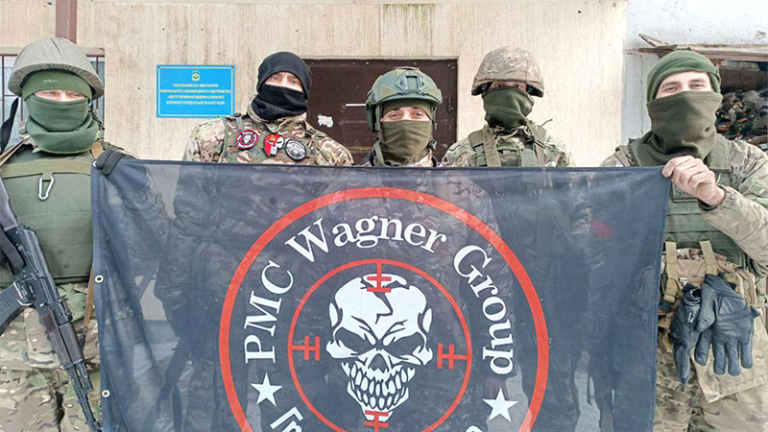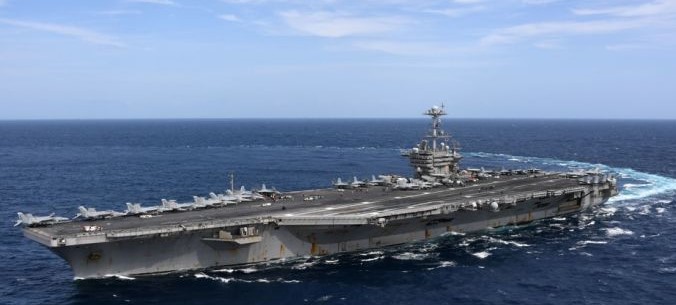
STRATEGIC ASSESSMENT. Reports suggest that the United Kingdom’s Home Office is in the process of formally labeling the Wagner Group, a Russia-based private military security company fighting in Ukraine, among other places, as a terrorist group. The Wagner Group is already subject to a broad array of targeted financial sanctions imposed upon it by various governments, including the United Kingdom. Yet, to date, no government has made the decision to proscribe the Wagner Group for being engaged in terrorist activity or terrorism. Such a move by the United Kingdom would set a precedent for Wagner’s status – increasing the stakes for the group as it continues to expand its operations globally. The United Kingdom was already ahead of the curve in designating a violent far-right extremist movement, National Action, as a terrorist group; they have subsequently proscribed several additional extreme right-wing groups as terrorists. While the United States recently designated the Wagner Group as a transnational criminal organization (TCO) pursuant to an executive order, the impact of that designation is relatively minor because the U.S. TCO designation did not create new legal consequences for those who would support the group. In contrast, a UK designation of Wagner as a terrorist group could have significant normative and tangible effects and prompt questions about whether the United States would follow suit.
If the UK proscribes the Wagner Group as a terrorist entity, it would do so under the Terrorism Act of 2000. Such a designation would make Wagner, and its supporters, subject to significant constraints, including potential criminal penalties. Some of these consequences, such as an asset freeze, are already being applied to the Wagner Group by virtue of existing sanctions deployed against the group. Others, such as criminalizing the act of wearing, carrying, or displaying articles in public such that there is reasonable suspicion that the individual is a member or supporter of the group, are less substantial. Moreover, the mere expression of a belief or opinion of the proscribed group could result in criminal penalties. In contrast, the UK’s current approach of targeted financial measures focusing on Wagner has relied on Russia sanctions-related regulations that primarily aim to freeze any assets the Wagner Group may possess due to its undermining of Ukraine’s territorial integrity.
Relatedly, in the United Kingdom, there is a legal initiative being pursued before the High Court in London trying to hold the Wagner Group to account for engaging in terrorism. This initiative has been noticed by Wagner’s founder, Yevgeny Prigozhin, who directly chided the solicitor for pushing the case forward. Adding the Wagner Group to the UK’s terrorist list would likely help current and future legal initiatives in the UK. Additionally, in November 2022, the UK Parliament’s House of Commons Foreign Affairs Committee held a hearing on whether the UK should proscribe Wagner as a terrorist group. Accordingly, pressure has been mounting in the UK for the Home Office to designate Wagner as a terrorist group. If the UK takes this step, it could catalyze other countries to follow suit and serve as a template for countering the proliferation of private military companies operating elsewhere.
If the UK does proscribe Wagner, it would set an international precedent by treating Wagner as a terrorist organization. The potential normative value of such an action would be poignant. First, it would likely result in pressure on other states to do the same. Indeed, some of these conversations are reportedly occurring in capitals already, according to recent media reports. But a formal action by the UK could be the forcing mechanism needed to translate governments’ conversations into tangible action, operationalizing a designation to blunt Wagner’s spread. Just last week Politico reported that the United States Government was actively considering adding the Wagner Group to the State Department Foreign Terrorist Organization (FTO) list. Second, the UK listing of the Wagner Group would set a precedent in the UK by labeling a “private military company” as a terrorist entity. There are no similar types of groups on the UK’s current list of proscribed organizations. Further, the UK listing of Wagner as a terrorist group may make it more likely for governments currently doing business with Wagner to reconsider their relationship with the group. Finally, the proscription could have a deterrent effect by resulting in other would-be Wagner allies to say no to potential business arrangements with the group. In isolation of other action against the group, such as the implementation of the proscription, the designation by itself may not curb Wagner’s ability to accrue wealth. However, there is a possibility that other would-be competitors of Wagner emerge in anticipation of some of the potential difficulties of working with Wagner in light of the sanctions (TSC).
Photo : Ilustration, by, arabcenterdc





